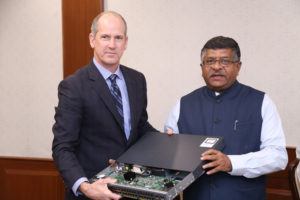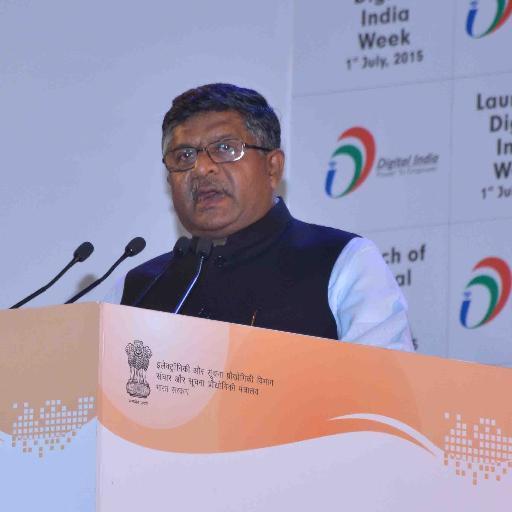New Delhi– Transport fuel prices going north is a matter of both increasing concern and discussion and the government trying to find a long-term solution to the problems issuing from global price volatility, IT and Law Minister Ravi Shankar Prasad said on Wednesday.

Briefing reporters here following a Cabinet meeting, Prasad was responding to queries on petrol prices in Mumbai, Delhi and Chennai having already reached unprecedented levels, and setting new benchmarks every other day.
Under the dynamic pricing regime, petrol in Mumbai touched Rs 84.99 a litre on Wednesday. In Chennai, price of the fuel breached the Rs 80 a litre mark on Wednesday and was priced at Rs 80.11 per litre.
In Delhi, petrol inched higher to a new record of Rs 77.17, and in Kolkata, it cost Rs 79.83, almost a five-year high.
“The issue of the frequent hike in fuel prices has become a matter of discussion and concern and the government is involved in the whole process of concern and uncertainty,” Prasad said.
Diesel prices, which have already reached unprecedented levels, set new records across the country. In Delhi, Kolkata, Mumbai and Chennai, diesel was sold at Rs 68.34, Rs 70.89, Rs 72.76 and Rs 72.14 per litre, respectively.
Responding to a query on the comments of former Union Finance Minister P. Chidambaram on Wednesday that the government can reduce excise on petrol by Rs 25 per litre but is unwilling to do so, Prasad said the Centre is considering a long-term view on the matter in “view of the frequent fluctuation in fuel prices”.
He pointed out that petrol has been deregulated since a few years and that at times of fall in global prices in the past, the government passed on the benefit to consumers.
“In view of the global uncertainty on oil prices, the government is looking at the desirability of taking a long-term view to deal with the issue of volatility and the frequent ambiguity arising out of the fluctuation in prices,” he said.
“There is a compelling need for a long-term structured solution to the problem in which the government is actively engaged.”
The Minister also said the taxes on petrol and diesel go to fund development work that benefits both the Centre and the states, citing the example expenditure on works such as highways, digital infrastructure, education and creating medical institutes. (IANS)





